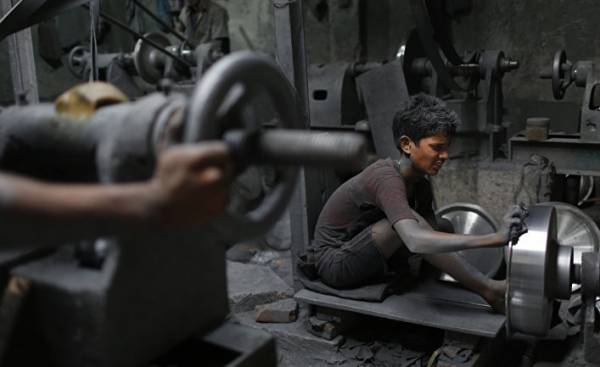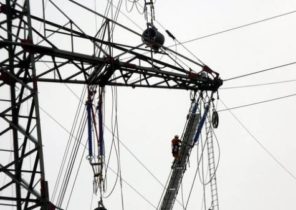
Rzeczpospolita: We work to live or live to work?
Step Andrzej (Andrzej Szahaj): depending on the cultural context and historical phase of the people’s attitude to work is very varied. If we restrict ourselves to Western culture, it is possible to see how this approach has transformed over time. Now we perceive work not as the inhabitants of Ancient Athens, or even our ancestors who lived several centuries ago. However, around the time when capitalism was formed, the work in the Western world began to take the place which he now occupies.
These alterations were associated with the industrial revolution?
— With a number of factors that have created the reality in which we live. First of all, the story came out, the bourgeoisie, with its cult of work. There have also been changes in the philosophical sense. On the one hand, it was religious ideas that arose first in Protestant circles, as he wrote in his book “the Protestant ethic and the spirit of capitalism” Max Weber (Max Weber). On the other — has blossomed, the philosophy of the Enlightenment. This liberalism, secular bourgeois morality that put labor at the center of human life.
General new concepts were two ideas: the approval of labour and the censure of laziness, idleness. Because of this I began to form a cult of work. He was, of course, is very beneficial for the arising of capitalism, which could not develop without the stress of the intensive work of the whole society. Important was the disciplining aspect of the work. In short, the new doctrine was filled with hard work, ideological motivation, and new socio-economic system is used and strengthened this cult. All these factors contributed to the fact that about the middle of the XIX century was born a modern approach to the work: it has become incredibly important, even a fundamental element of human life, both individually and in public. Mentioned the industrial revolution has led to a situation in which life was presented as one big factory, and the company — team working.
— What exactly does it all mean?
— Work was the most important factor that shapes the man. First, it takes us most of the time, and secondly, most importantly, sets the bar for us values and makes life worthwhile. The process of submission of the existence of the work developed gradually, and its peak we observed in the last decade. Western civilization is obsessed with work.
He gradually pushed into the background all other human activity approaches to understanding the world and himself. It became the center of human life and the Foundation of the system, which, due to their obsession with efficiency has led to a situation where for many people, nothing besides work has not and cannot have values. They have to work more and more and more intense.
Not only capitalism has put work at the forefront. Communism was perhaps even more obsessed with the working people, social advancement through work, regulations, operational plans.
— Of course. Obsession with work is a hallmark not a specific system, but in General — era that emerged in the nineteenth century. Work has taken its place due to factors that appeared before these systems of government. The problem is that at some point in the twentieth century, we were forced to work all the harder, we forgot about the motivation about why we do the work. We rejected reflections philosophical, ideological, religious nature, which answered the question, what is the work. We are working more, but fewer understand why.
— So, we still live for the work…
— Yes, but this is a relatively new phenomenon, which is typical mainly for the Western world, and that is not all. In many cultures, people still work as much as you need to feed yourself and the rest of the time I… life. In the individual aspect of the work became the basis of self-respect, human dignity, all processes of self-realization, moreover, it often determines the meaning of our existence. In turn, in public terms, it is an important element that forms social connections. Thanks to the work of various groups is an emerging sense of solidarity between people formed companies. It should be noted that the social aspect of work is present in our culture already, long before the present. The work served as a basis for the formation of communities in the middle ages, in the nineteenth century, these processes have only intensified. On this basis was born is a strong class, professional identity.
— Focus on the identity of a particular person. Where does what sociologists call the axiological aspect of labor? Does this mean that depending on what kind of work does the person that looks at the moral issues in a different measure values freedom or security? Whether the work determines our values?
— Work determines our perception of the world 100%, however, it was undoubtedly an incredibly important element in the formation of consciousness, of perception itself. The moral aspect is: a job well done fills one with respect for himself, and this is very important. The problem is that this moral aspect in recent years is weakening. Now we are working only for money: is the only purpose of our efforts.
In this context, began to speak of the extreme commodification work. Having lost all significant moral aspects, it was the only product on the market. This process can be called the moral decay of labor. The concept of human dignity has disappeared. Man, you don’t want to do their job well, because the financial incentive for him too little. There is alienation of labor: we feel that our work is something alien to us hard to bear, especially as the labor process is often associated with humiliation, low pay, stress.
One popular Internet meme says: it’s not that we dislike Mondays, we just didn’t like his job.
— In psychological terms, the process of alienation is manifested in disgust, even hatred of work. It seems that this phenomenon intensifies, is becoming more common, although the historical data on this subject no. We know, however, that now about two-thirds of poles do not like their work, then they are alienated from what they do. This is not surprising, since the work does not literally anything other than financial incentives, and sometimes even something deprives: self-esteem, a sense of justice, respect for yourself. Commodifications in fact, we ourselves become a commodity to exploit, until it will become worthless, and then thrown away.
We begin to perceive themselves as a product on the market, abandoning their own identity and to govern themselves as a company. We forget that man is more than the worker and the consumer. At the same time, the system requires that the person worked hard. This is not the time when in the labour market it was possible to sell only part of himself, a new type of capitalism wants the employee has been in work all their thoughts, emotions, time. The line between work and leisure is erased because the system sees the best in people workers, not multi-faceted creatures.
— Make it clear: you’re saying the man was his work that served as its formation, only a part of yourself, and now, although the work does not give him anything except money, he is forced to surrender her whole?
— Of course, there are different professions, companies and corporations, so not all do work that satisfies only material needs. But if you look at the situation as a whole, we can say that the negative processes that we are talking about, deepen. However, that seems increasingly alien, becomes increasingly tedious. Requirements that apply to employees who become virtually impossible. From a man demanding that he put in work just 24 hours a day, because it often happens that the intellectual labour (the typical activity for a modern building, which is often called “cognitive capitalism”) requires the connection of all emotion, and at the same time constantly having mental pressure. Therefore, we have witnessed a global epidemic of burnout, depression, dependence on psychotropic substances. Many of us can’t handle the pressure. It should also mention that the physical labour that is poorly paid and despised in the community, is still exhausting.
— There are, however, flexible models of employment. There are opinions that in the future we’ll be in the morning to deliver people “Uber”, day oven pizza in the restaurant and in the evening to answer calls in a call center.
The question is how much flexibility we are able to endure. People can’t be flexible all my life. In some periods we may be willing to reconcile with the lack of stability, insecurity and constant change, but if this stage is prolonged, it destroys the psyche. Man needs security. The cult of flexibility that is characteristic of cognitive capitalism has reached the limits of human endurance, in a sense, has come to the point of absurdity. It all went too far. I’m afraid we’ll have to pay more (in social and psychological terms) for this approach to work. In the long term is not beneficial to anyone.
We can therefore put forward the thesis that modern work has become unhealthy and even more: this degenerate work itself has become a disease that begins to torment mankind. To prevent these destructive processes and to decide what to do next takes a lot of effort on the part of intellectuals, politicians and representatives of the business world.
In a sense, we can take comfort in robotics and automation, it is possible to pass cars and computers much of the hard and tedious work that people are doing.
Is a complex problem. Social Sciences consider a few possible scenarios of further development of the world of work. Of course, there are prophecies that soon no work will be: all of us will be able to make the robots. Many experts remind us that these fears are nothing new. We have a century and a half fear that technical and technological progress, will deprive us of work, but the effects of the new inventions was always the same: some professions disappeared, some appeared. I note that in the last few decades the progress led rather to the increase of labour, and not to reduce it. This is the paradox.
— Means, work getting bigger?
Other scholars argue that technological development has been a qualitative change, and this time the majority of the population is actually deprived of opportunities to work. The question arises, how to prepare for a completely new historical call. If this change actually happens, the more likely it will affect developed countries, i.e. the West. It is difficult to imagine what psychological and social consequences it will bring.
Here again emerges a few scenarios. Karl Marx said that work is inherently a curse, and so when the world will reach such level of development in which people will not have to work, they can finally develop their best qualities. They are not idle or bored, and will to develop spiritually, working on ourselves, to improve the talents, abilities, and so on.
Empty dreams…
— Yes, many realized initially that it is a utopia. Other scenarios seem more pessimistic. Many of them assume that if you deprive people of the opportunity to work, humanity will face a moral decline. It will enter into an era that will determine the lack of meaning, emptiness, boredom, contributing to the increase of aggression. Some scientists say that having lost work, people will start to fill out a simple entertainment, some escape from reality, for example, in the virtual world. Perhaps people do not want to leave the virtual reality because this will not be a incentive.
Can be a very difficult situation, because someone probably will continue to operate, serving all of these automated processes. These individuals will receive special social status, the emerging new class system.
— Will be working the lucky ones and lower caste, deprived of work.
— Yes, the running of the elite and the masses who need something to occupy their free time, because, most likely, it will not be the heroes of utopia of Marx, which will begin to make art or make scientific debates. The elites will have to arrange their lives so that the state there will be a new feature. Perhaps the situation will resemble Ancient Rome, where people tried to provide entertainment to they’re not staged a mutiny. It is difficult to imagine how it would look in our time, and what will humanity. But, I would suggest that, most likely, the conditions would not have to the flourishing of the best human qualities. So it pays not to indulge in dreams of a life without labor, and to think about how to divide the labor at all to improve it and make it again a phenomenon which has a profound intangible meaning.






